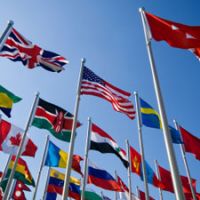Abstract
International trade presents our nation with a complex and growing challenge. On the one hand, the global system of open trade has brought substantial and widespread benefits to the U.S. economy. On the other hand, trade has led to dislocation in certain industries and has introduced new risks and uncertainties into the lives of many American workers. Achieving an equitable distribution of the benefits and costs of trade will require strong, effective government policies. The need for such policies will only grow more urgent as nations like China and India become increasingly dominant forces in the world economy.
Trade's pattern of widespread economic benefits and concentrated harm mirrors the broader process of “creative destruction” of a dynamic economy. Indeed, technological advances that produce overall economic gains but dislocate workers in specific sectors are very similar in effect to trade expansions. The invention of the automobile, for example, not only significantly reduced transportation costs and thus raised overall economic productivity, but it also displaced a variety of firms and workers associated with a transportation sector that was based on horses.
This briefing paper articulates a philosophy of embracing international competition while investing in workers and market-friendly insurance. The underlying goal of this philosophy is to boost overall productivity while also sharing more broadly both the benefits and costs of trade. Not surprisingly, given the similarities between trade and other forces contributing to creative destruction, this approach to trade is consistent with The Hamilton Project's overall economic strategy of embracing the dynamism of a modern economy supported by effective government programs that spread the benefits of growth more broadly. Indeed, the specific policy steps needed to raise overall economic productivity and achieve more broad-based economic growth—steps such as improving education, investing in research, and improving the social safety net—are the same, albeit perhaps more urgent, in a global context than they are in a purely domestic one.
Thus, rather than constructing programs designed to assist only those workers displaced specifically by trade, the government should build broad-based and marketfriendly forms of protection to help families experiencing economic hardship for any number of reasons. For the trade philosophy discussed here to be fully realized, the nation must take seriously the need to invest in education, basic scientific research, greater economic security for households, a world-class infrastructure, and effective government. To help advance this approach, The Hamilton Project will continue to release innovative policy ideas — based on experience and evidence, not ideology and doctrine — to restore broad-based economic growth and achieve a more inclusive distribution of the benefits and costs of trade.



